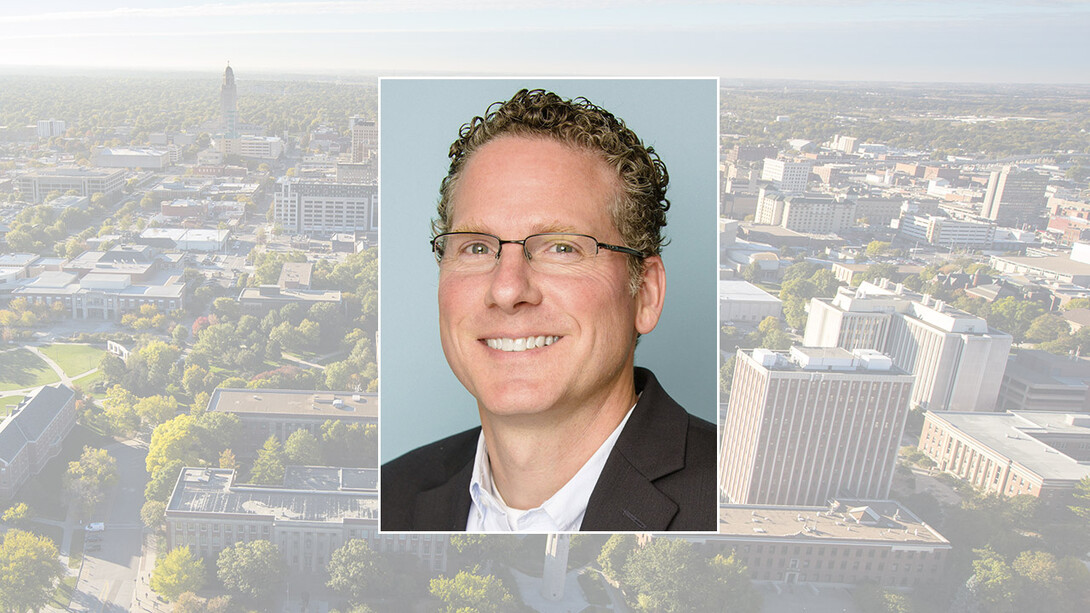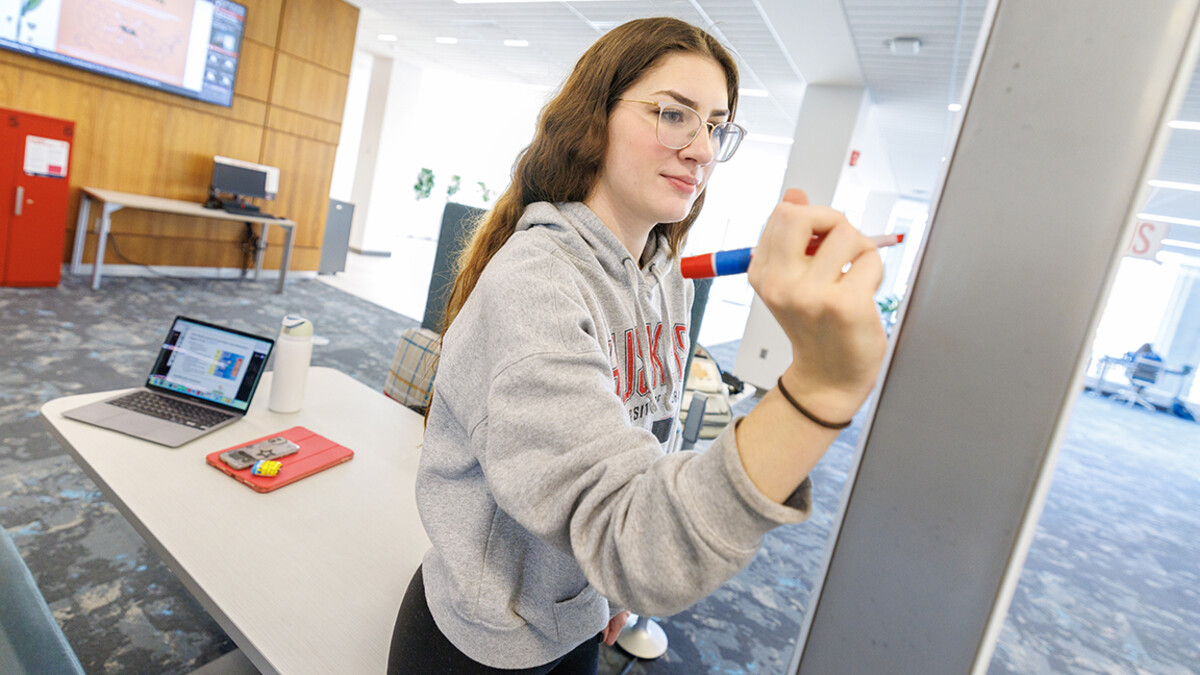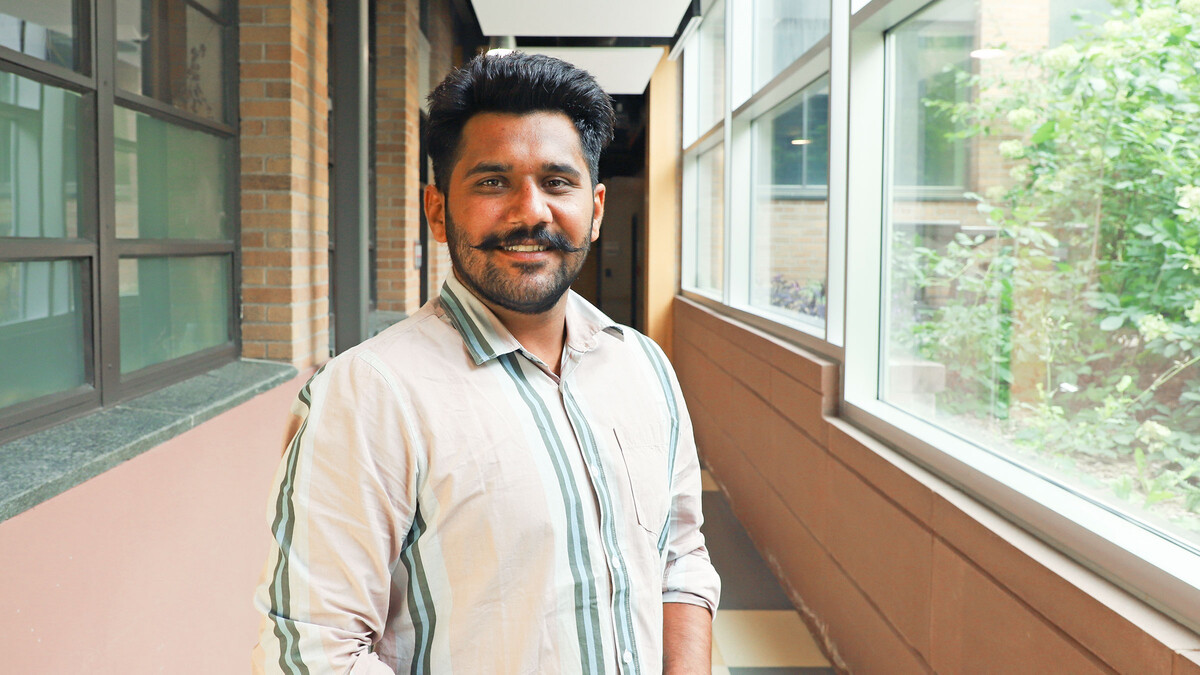
Derek McLean has been selected as the next dean of the University of Nebraska–Lincoln’s Agricultural Research Division.
McLean, who currently serves as a senior science adviser in the Office of AIDS Research at the National Institutes of Health, will begin the appointment Jan. 1. He will succeed Archie Clutter, who will retire at the end of the year.
In his new role, McLean will lead and oversee all programming and initiatives related to agriculture and natural resources research, as well as the three research, extension and education centers and affiliated research sites across Nebraska. The position is housed within the university’s Institute of Agriculture and Natural Resources. McLean was one of four finalists who visited the university to interview for the position earlier this summer.
“Everything I learned during my visit to UNL furthered my desire to join the Institute of Agriculture and Natural Resources,” McLean said. “I was already aware of its reputation for excellence in research, education and community outreach, and the enthusiasm to build upon that success was unmistakable throughout the selection process. I look forward to the opportunity to support the faculty, staff and students and engage stakeholders as they pursue their goals in providing innovative solutions to address the interdisciplinary challenges we face as a society.”
The Agricultural Research Division dean works closely with Nebraska producers and ag and natural resources groups to ensure that Husker scientists are engaged in research that advances agriculture and natural resources management in Nebraska. Lisa Lunz, president of the advocacy group Ag Builders of Nebraska and a farmer from the Wakefield area, said she appreciated the interest in cultivating relationships with IANR stakeholders McLean demonstrated during the interview process.
“I’m excited to work with Dr. McLean to build on the strong foundation of research and discovery relevant to Nebraska’s farmers, ranchers and other stakeholder groups,” Lunz said. “I want to thank Dr. Clutter for his leadership within IANR and his work throughout the state.”
Bill Rishel of North Platte, founder of Rishel Angus, also participated in the interviews.
“Having attended the interviews of the candidates for the position, I was impressed with how Dr. McLean clearly defined why he was interested in this role,” Rishel said. “He said he enjoys the process of pulling different projects and groups together. The ARD dean position certainly presents an opportunity to fulfill that challenge.”
In his current role, McLean works to ensure that research funding aligns to the priority areas established by the National Institutes of Health. This effort requires expertise in building relationships, establishing groups to develop funding plans and policy and working across the more than 20 institutes and centers at NIH. Prior to NIH, McLean was the senior director of collaborative research for Phibro Animal Health Corporation. He also served for 10 years as a faculty member in the animal sciences department at Washington State University.
“We had an incredibly strong group of candidates for this position, but Dr. McLean’s experience spanning higher education and the private and government sectors stood out,” said Mike Boehm, NU vice president and Harlan Vice Chancellor for IANR. “Dr. McLean is a highly effective, thoughtful and inclusive leader, and I’m delighted to welcome him to UNL. I’d also like to thank the search committee, chaired by CASNR Dean Tiffany Heng-Moss and Professor Ed Cahoon, for their work in cultivating such an incredible group of candidates.”
Clutter announced in January that he would retire at the end of 2022 after holding the Agricultural Research Division dean position for more than a decade. Under Clutter’s leadership, both research awards and expenditures have grown steadily, culminating in fiscal year 2021, when the division received a record $64 million in externally sponsored awards. At the same time, the division has seen the construction of state-of-the-art research facilities and the development of interdisciplinary research teams created to more holistically address complex issues related to food, water, climate and the environment.








